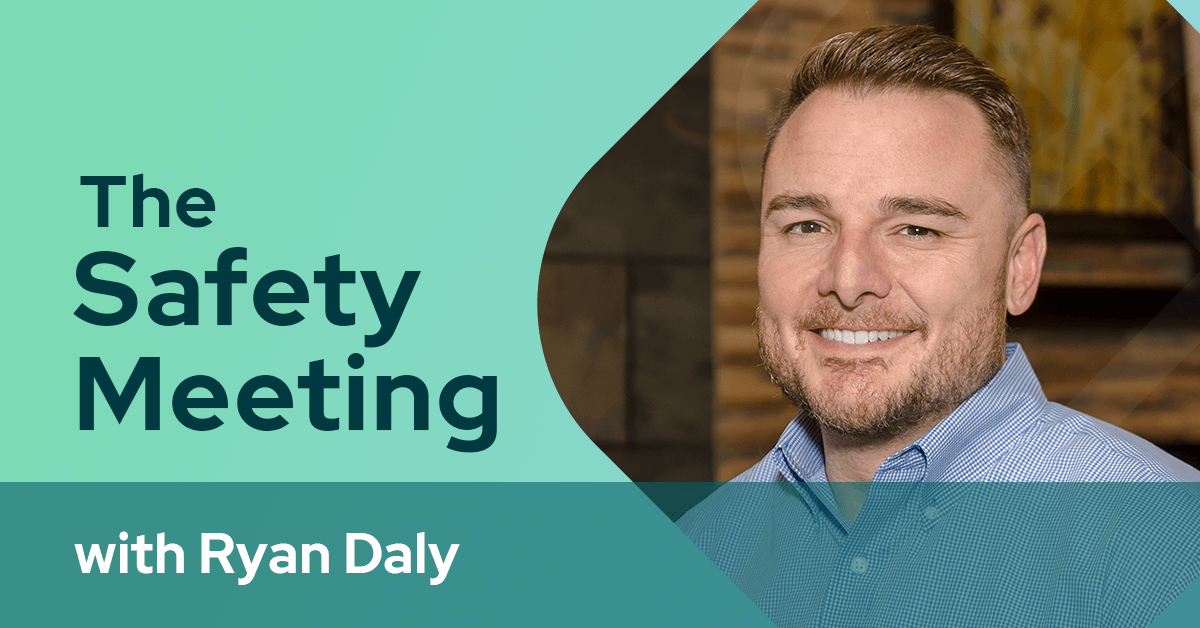Dealership F&I Hot Topics: An Interview with Ryan Daly
[00:00:35]
So Ryan, why should dealers care about following F&I best practices? What’s in it for them?
What would be in it for them really would be the fact that there’s always constant scrutiny on top of dealerships. And there always have been. I worked in dealerships for 16 years and I was constantly told that I was cheating people all the time. Or they just didn’t trust in us. Well, the government has taken note of people’s reactions to things like that. And they’ve introduced several litigations across the country from the federal side, state side.
Also what’s in it for them really is bad press. Dealers really can’t come back from bad press.
[00:01:10]
Reputability goes a long way. What F&I issues should dealerships and particularly F&I professionals be aware of right now?
With the changes that are happening in the government in DC, especially with the new regime, fair lending has really come into play with the new rules and regulations.
They’ve already opened up Gramm-Leach-Bliley to protect data security, even more. NADA has been stressing all of 2021 fair lending. So a lot of the rules that were already in place and on the back burner for four years when the old administration was in, they’re coming to the forefront now. So especially this time of the infancy of the president’s agenda, this is going to be on the forefront.
[00:01:53]
Well, that is good to know. Tell me about payment packing. Why is it done and why should it be avoided?
Anybody that’s been in the industry knows what payment packing is. It’s basically where you do not tell the client what their actual payment on the deal is going to be. It’s what is considered leg. Everybody understands what leg is, and how it should be avoided is being transparent. Transparency is key and dealerships and especially the F&I offices right now.
[00:02:21]
And if it’s such a ubiquitous thing within the industry and everyone knows it should be avoided, why does it keep happening?
Because it’s very easy to do. The client has no idea how to calculate interest or if you’ve actually added anything. There are very few people in my 16 years in the dealership that knew they were being payment packed. They didn’t know the word, but they knew that the payment didn’t add up.
[00:02:45]
So if you’re trying to avoid it, why are you trying to avoid it in terms of- from a regulatory perspective? Why does this need to be avoided?
It needs to be avoided because the government doesn’t like it. There are plenty of people in DC that already think dealers are inherently evil. None of these people have ever worked in a car dealership. They’ve never financed a vehicle. And there are a ton of great human beings that work in car dealerships.
It’s very few and far between that are the bad apples and you see them on the FTCs website regularly.
[00:03:14]
Let’s move on to another “what not to do.” Tell me about credit application manipulation. What’s happening there?
Basically what’s happening in this situation is that the customer will hand-write that they make $2,000 a month just sending the credit app online or handwriting it themselves.
And the dealer will take it upon themselves to what they call “gross it up.” I’ve seen instances where it’s been $48,000 a year. I’ve seen a couple of hundred thousand dollars a year, where it automatically changed. The customer wasn’t made aware, but that’s what’s sent to the bank just to get the deal done.
[00:03:48]
And what’s the incentive there? Why would this be happening?
Once the finance manager or a sales manager sends a deal to a bank there are metrics already set up electronically that the deal will fly through and get approved easily. The issue with this is if the customer comes back and says, I can’t make this payment and the credit application doesn’t actually match what they make a year, the bank can make the dealership buy that car back.
[00:04:14]
So for the sake of protecting your bottom line as a dealership, even though it might be tempting to do something like credit card application manipulation, in the end, it’s in your best interest to avoid that so that you don’t end up letting it bite you in the butt later.
Exactly correct.
[00:04:30]
So what should F&I professionals keep in mind when it comes to information security for their customers?
I think the biggest thing that they would need to understand is that they are a bank. The government considers them a bank because they extend credit. So with that, think about yourself, walking into a bank, would you want to see your social security number, driver’s license, any of that information laying around a bank?
You’d probably feel pretty bad about that, where you’re banking. It’s the exact same thing of when you’re going into a car dealership, they need to understand that they need to make sure that all customer information is private and secure and they can’t throw things in trash cans, leave doors open, where it’s easily accessible.
[00:05:12]
So in terms of reputation, it makes sense to have best practices when it comes to information security so that customers feel secure in your dealership. From a regulatory perspective, are there impacts on the bottom line, if you’re not toeing the line with this one?
Oh, absolutely. I’ve been on calls with insurance companies for dealerships, where they’ve paid hundreds of thousands of dollars in the past year for fraud, where they didn’t have the correct person or they allowed someone to come in and just steal information from their secure rooms or offices, or just rummage through the trash can.
[00:05:50]
What advice do you have for dealerships looking to audit and improve their F&I process across the board?
So I think back to when I started as an F&I manager, I was literally handed a key to my office and a list of fonts to print. And that’s all the training that I had. They never once talked to me about compliance.
They never once told me the laws and things. They said, “you should already know all this stuff.” Well, the fact is there’s no way to know all of it. So, what you need to do is implement a process from top to bottom for anybody who’s been in the car business for five minutes or 50 years. Rules are changing all of the time.
The processes always needed to be followed. Because if you’re following a proven process, like something that KPA provides for you and helps train towards, you can help offset any litigation, especially from the government when they do come knocking.
[00:06:47]
Yeah, and you’re already touching on this, but just to really drive it home, what resources are available for F&I professionals and especially leaders to make sure that they are staying compliant and protecting the bottom line of their dealership.
Well, we’ve got award-winning training top to bottom for the F&I process, as far as compliance. We also come in and audit the dealerships for other things that are not included in some of the training. We also have in-person training that we can one-on-one inspect and go over what we found on site.
Literally going, you know, real-time of, “Hey, how did this particular deal get done this way? Why does it look this way?” Because of the optics again, don’t look good. And when the optics don’t look good, that’s when the government or an attorney comes calling.
[00:07:33]
So how does KPA consulting help dealerships stay compliant?
I’d say the biggest way that we come in and help is that we give you the ability to find out what you don’t know. When I took this position over five years ago, there were things that I didn’t know when I started doing my training and I thought I knew a lot. However, over the past five years, I found out, that I didn’t know a fraction of what I needed to know.
Most people in a finance office, sales managers, all say, “I know compliance.” The truth is no dealership really trains to it unless they have a practice like having a KPA in to give you all of the necessary information that you literally don’t know. Your job is to sell. They also want you to do it compliantly. They typically don’t tell you how to do it.
[00:08:22]
That makes a lot of sense. And plus getting another pair of eyes on something never hurts. Right?
Absolutely.
[00:08:29]
Okay, well, thank you so much, Ryan, for your input today, it’s been really useful.
[00:08:33] Ryan: Awesome. Thank you.

